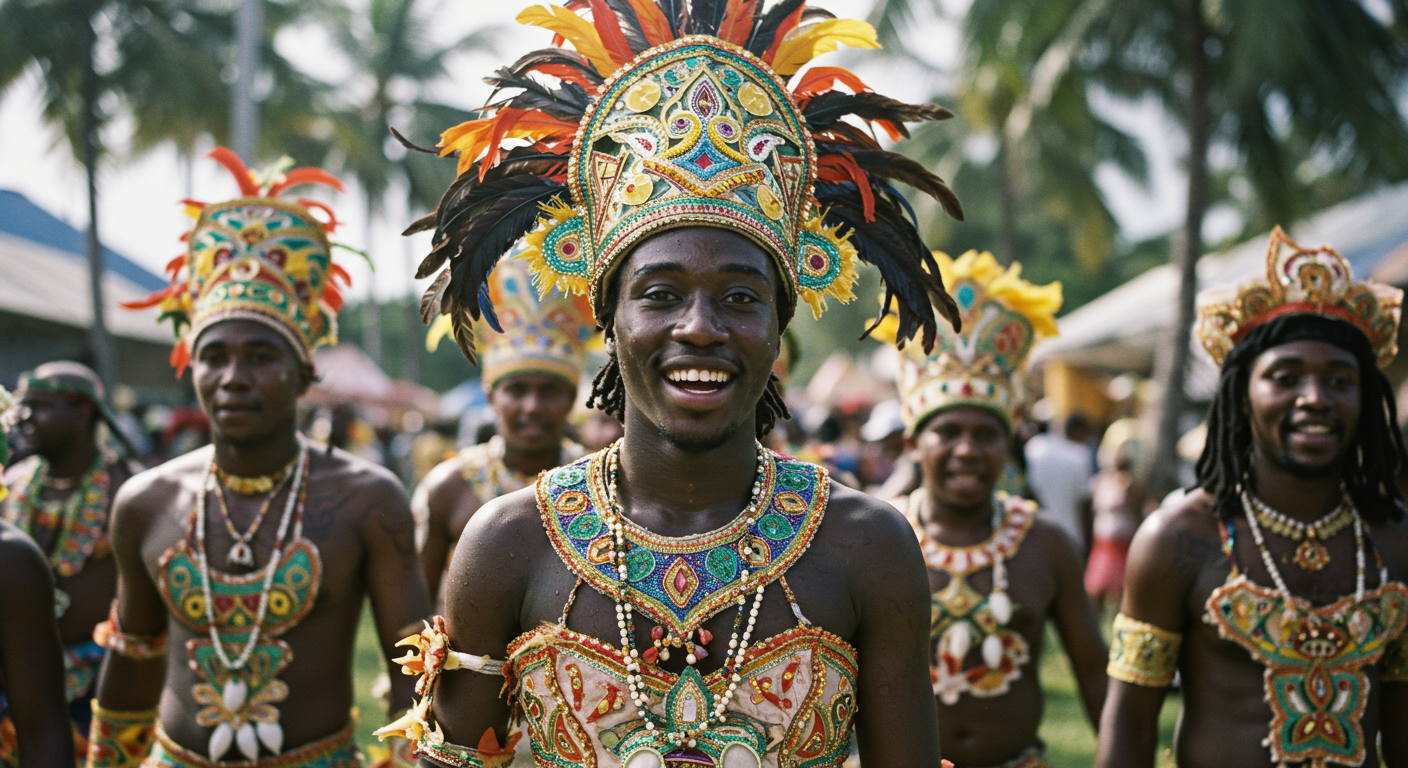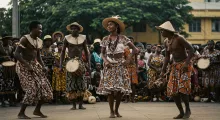The Crop Over Festival in Barbados is more than just feathers and rhythm—it’s a historic celebration deeply tied to African heritage, sugarcane labor, and the resilience of a people. Running for nearly a full month from July 5 to August 5, 2025, this vibrant explosion of color, music, and cultural storytelling is one of the most authentic African-rooted carnivals in the Caribbean.
A Festival Born of Fields and Freedom
Crop Over began in the 18th century, when enslaved Africans and later free workers marked the end of the sugarcane harvest with drumming, dance, and feasting. The name “Crop Over” literally referred to the season’s end, but it symbolized release, survival, and Black joy despite oppression.
After waning in the early 20th century, the festival was revived in the 1970s with a strong emphasis on African identity and Bajan cultural pride. Today, it draws global crowds, especially diasporans seeking a reconnection with ancestral roots.
Cultural Events and Highlights
Crop Over isn’t a single day—it’s a month-long cultural wave. Each event blends African tradition with modern Caribbean flair.
Ceremonial Delivery of the Last Canes (Opening Day) – A reenactment symbolizing the final sugar harvest, often held in early July. Folk performers dress in traditional garb and African drums echo through the streets.
Cohobblopot (July 28, 2025) – A massive showcase of Bajan music, dance, and calypso. Named after a stew made from leftovers, this event symbolizes cultural fusion and resilience.
Calypso Monarch & Pic-O-De-Crop Finals (August 2) – Poetic battles where calypsonians speak truth to power using wit, satire, and ancestral memory.
Foreday Morning Jam (August 3) – A pre-dawn mud-and-paint street celebration rooted in African rites of purification and rebirth.
Grand Kadooment Day (August 5) – The epic finale with parades, masquerade bands, and elaborate African-inspired costumes.
African Influence in Music and Mas
The African heartbeat is unmistakable at Crop Over:
Tuk bands—percussive groups using instruments from West African and Scottish traditions—provide a hypnotic rhythm.
Spouge, calypso, soca, and modern Afrobeats and dancehall dominate the airwaves.
Many mas bands use themes like “Mother Africa,” “Ashanti Royals,” or “Goddess Oshun” to honor the diaspora visually and spiritually.
Costumes, Symbolism, and Masquerade
Costumes at Kadooment reflect a blending of West African spirituality and Caribbean creativity. Expect cowrie shells, gold-leaf-painted bodies, Yoruba headpieces, and Maasai-inspired beadwork.
Costume designers often use storytelling:
Red and gold represent the fire of resistance.
Blue and white evoke Yemoja, goddess of the sea and protector of Black ancestors during the Middle Passage.
Masks and horns reflect African masquerade traditions used to mock colonial power.
Food and African Culinary Threads
Crop Over is a feast for all senses—especially the tastebuds. Bajan cuisine is an evolution of African food memory:
Cou-cou and flying fish (Barbados’ national dish)
Macaroni pie, fried plantains, pickled pork
Spiced drinks like sorrel, mauby, tamarind juice, and rum punches
Many food stalls proudly fuse West African spices with local ingredients—showing how African palates have adapted across the Atlantic.
Why Crop Over Is Powerful
Crop Over is more than entertainment—it is remembrance, resistance, and rebirth. It honors the enslaved Africans who toiled in sugar fields while celebrating the creativity and freedom they passed on.
For African descendants worldwide, it’s a place to reconnect, dance, and heal—one beat, one costume, one kaiso verse at a time.







